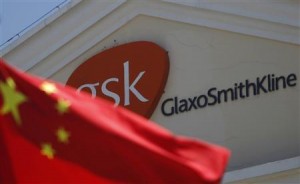
With the prevalence of Internet and social media usage these days, it’s no wonder that unethical marketing practices have led to a plunge in sales for Britain’s GlaxoSmithKline Plc. The research-based pharmaceutical and health-care company is accused by Chinese police for bribing doctors to prescribe its medicine to patients in hospitals even in situations where it may not be medically essential. The vulnerable group are the patients who may be in desperate situations, and put their trust in the doctors who have reputable status in society. While access to effective preventive and treatment medicine is evidently beneficial, the increasing sales as a result of direct-to-consumer advertising should not be the main objective for these companies. Rather, these companies should promote its drugs through concentration on the educational purpose of these ads. Most developed countries, such as Australia have banned direct-to-consumer marketing of prescription drugs. The problem with direct-to-consumer marketing lies within the quality of information transmitted through the ads and the extent to which they may inappropriately influence consumer demands, to want a drug that may not be necessary.
This scandal has not only caused damage to GSK, but has hurt the entire pharmaceutical sector in China with an evident dent in sales. Disturbingly, this is not the first time that the company has been entangled in an unethical marketing scandal. In 2012, the company paid a fine of US$3 Billion to settle charges of inapt promotion of antidepressants and failure to report safety data about a diabetes drug [1]. The ongoing scandals lay emphasis on the multitude of ethical challenges of globalized drug development and the dire need for corporate integrity in this industry. This discussion triggers a question surrounding how prescription drugs should be treated in the marketing environment, as it is clearly not a typical product on the market.
Sources:
1. China’s pharma scandal and the ethics of the global drug market
2. Analysis: Bribery scandal dents Big Pharma sales in China, GSK hardest hit
Photo Credits:
http://www.reuters.com/article/slideshow/idUSBRE98H07620130918#a=1